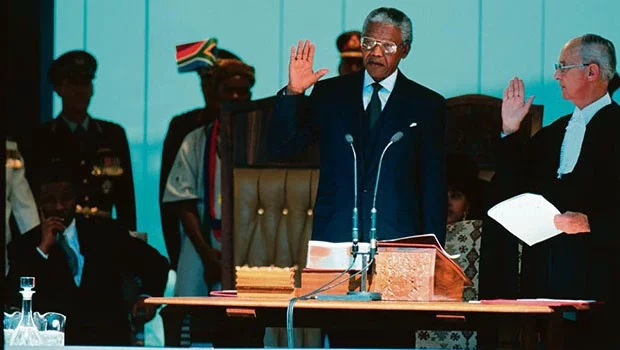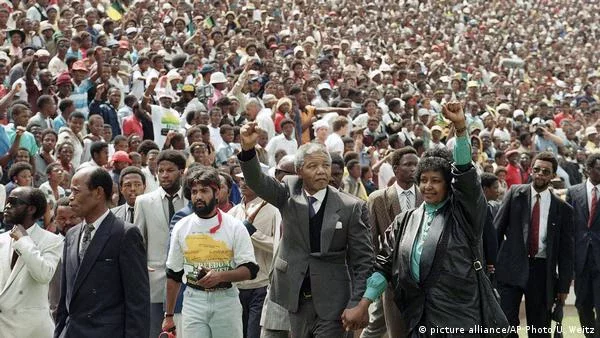TODAY IN HISTORY: Nelson Mandela Sworn In As First Black South African President

On May 10, 1994, Nelson Rolihlahla Mandela broke a major record by becoming the first Black South African President to assume office. His electoral victory and subsequent inauguration came after enduring 27 years as a political prisoner. Mandela’s presidency marked a historic moment following the country’s inaugural multiracial parliamentary elections, where over 22 million South Africans voted overwhelmingly for him and his party, the African National Congress (ANC).
Born in 1918, Mandela defied expectations by pursuing a legal career instead of succeeding his father as chief. He joined the ANC in 1944 and became a prominent figure advocating for the rights of South Africa’s Black majority. With the rise of the racist National Party in 1948, apartheid became official policy, prompting Mandela to increase his activism through nonviolent means.
Despite enduring imprisonment and harsh conditions on Robben Island, Mandela’s resilience remained unbroken. He led civil disobedience efforts that eventually pressured authorities to improve conditions. In 1989, F.W. de Klerk who emerged as President initiated the dismantling of apartheid, lifted the ban on ANC, suspended executions, and later ordered the release of Mandela from prison. Mandela then led negotiations for an end to apartheid and a switch to a multiracial government.

Image credit: picture alliance/AP
Mandela’s presidency prioritized reconciliation, exemplified by establishing the Truth and Reconciliation Commission to address past human rights violations. He also championed initiatives to uplift the Black population and oversaw the enactment of a new constitution in 1996.
Retiring from politics in 1999, Mandela continued advocating for peace and social justice globally until his death in December 2013 at 95 years old. However, Mandela’s legacy as a symbol of resilience, reconciliation, and good leadership continues to live making him a model not only in South Africa and the African continent but also around the world.
5 other key events on this day
(1).1st Mother’s Day observed – 1908.
(2). Winston Churchill succeeded Neville Chamberlain as British Prime Minister -1940.
(3). The Barbary pirates of Tripoli declared war on the United States of America (1st US foreign war) -1801.
(4). Victoria Woodhull became 1st woman nominated for the US presidency by the Equal Rights Party – 1872.
(5). Eight climbers died on Mount Everest – 1996.




